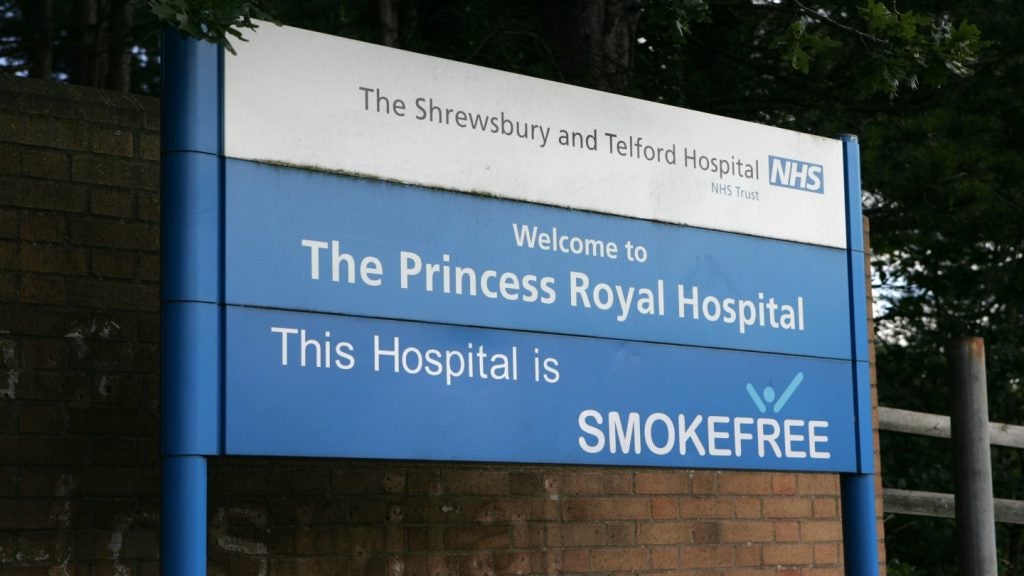
Since its launch in 1948, the UK’s National Health Service (NHS) has been one of the hottest topics at any election, and this year is no different. However, the 2010 debate is not about how much to invest in the NHS, but how to get better value for money.
The issue over healthcare spending in post-election UK started in response to Conservative MEP Daniel Hannan saying he “wouldn’t wish [the NHS] on anyone” on American television station Fox News during the US healthcare reform debate. This forced opposition leader and Conservative candidate David Cameron and other political figures to guarantee they would protect the frontline services in what Cameron described as a “great national institution”
All parties admit the NHS needs to become more efficient, however, they differ on what is the best way to achieve this.
Both the current Labour Government and the Conservatives support the expansion of the NHS foundation trust scheme, introduced by the Labour in 2004. This devolves powers over healthcare from central government to local areas, allowing them to focus on the health issues in specific areas. For example, communities with an ageing population would be allowed to allocate a greater budget to elderly care, while areas with a younger population could focus attentions on paediatrics.
The UK’s third party, the Liberal Democrats plan to scrap all strategic health authorities that deal with national aspects of healthcare and introduce democratically elected local health boards with the power to prevent hospital closures.
See Also:
Efficiency is high on the agenda for all parties claiming to have the magic formula. Labour wants to introduce a national telephone number for all non-emergency medical services.
How well do you really know your competitors?
Access the most comprehensive Company Profiles on the market, powered by GlobalData. Save hours of research. Gain competitive edge.

Thank you!
Your download email will arrive shortly
Not ready to buy yet? Download a free sample
We are confident about the unique quality of our Company Profiles. However, we want you to make the most beneficial decision for your business, so we offer a free sample that you can download by submitting the below form
By GlobalDataThe Conservatives, which have set itself a target of cutting NHS administration cost by a third, want to create a single telephone number for all urgent care, replacing Labour’s system of specialised telephone numbers.
Post-election hospital targets
NHS targets have been one of the more controversial elements of the UK healthcare system. Since they were introduced in 2000, all aspects of the NHS have been forced to meet goals regarding the time it takes a patient to see a doctor or be referred for treatment. Supporters claim the targets force doctors and hospitals to improve, while critics maintain they distract from the job the NHS is trying to do.
Both the Liberal Democrats and the Conservatives are in favour of scrapping the targets system for patient care. While the Liberal Democrats want to scrap the system altogether, the Tories want to switch the current ‘process’ targets with ‘outcome’ targets, replacing the maximum time before seeing a specialist with the number of people surviving.
Post-election elderly care
Care of the elderly has also become a huge issue for the NHS with many people criticising provisions for care homes and dementia care. Aside from under-funding, people argue that the main problem is the lack of dignity about ageing in the NHS.
For example, some elderly people have had to sell their homes to pay for long-term residential care. Labour wants to offer everyone aged between 40 and 74 years a free five-yearly NHS health check and from 2014 promises to meet elderly people’s care costs after they have spent two years in a residential home. Those with the highest need will also be eligible for indefinite free personal care from 2011 if Labour gets re-elected.
The Conservatives have pledged to ensure elderly people who go into residential care can do so without the fear of losing their home. A one-off premium of £8,000 at retirement would prevent homes having to be sold to pay for care and the party also rejects any taxation of elderly people’s estates after death to fund care.
The Liberal Democrat party believes the entire system of elderly care requires rethinking and is committed to setting-up a bi-partisan independent commission to develop proposals for long-term care for the elderly.
Monitoring health and services
Access to doctors and transparency across the NHS is also being hotly debated. For a while the Conservatives were talking about giving patients access to their health records through a ‘Google Health’ system. They also want to put hospital performance data online as part of a greater transparency policy across all areas of government.
The Liberal Democrats want to introduce ‘patient contracts’ setting out the expectations patients should have of the NHS. Labour wants to give patients the legal right to wait no longer than 18 weeks between a GP referral and hospital treatment and the right to choose their healthcare provider as long as it meets NHS standards and costs, a policy also adopted by the Conservatives.
The Liberal Democrats want a system where patients can register with more than one GP and make it easier to switch. And all parties have pledged to ensure GP surgeries are open later and on the weekends to ensure everyone can see a doctor when they need it.
As the founding political party of the NHS, Labour has promised to protect its legacy by establishing a National Care Service, which it believes will end the so-called postcode lottery where the hospital people are admitted to is based on where they live.
Paying for health post-election
Regarding payments, the Conservatives say they want to introduce a ‘payment by results’ scheme in NHS hospitals and one for GPs, and to increase the number of single rooms available in hospitals and remove mixed-sex wards.
Labour makes various commitments for cancer sufferers promising one-on-one dedicated nursing care and faster access to specialist and test results.
Following the recent hospital ‘super bug’infection scare, Labour is also planning to introduce national standards for infection control which will get tougher every year. In 2007 4,000 people died in NHS hospitals because of the Clostridium difficile infection and 430 died because of MRSA, leading to public outrage over hospital hygiene standards.
Like all government departments everywhere, the NHS is looking at leaner times as the world comes out of recession. All parties may have pledged to protect frontline services, although as with most spending cuts few specifics have been revealed. There are many areas they agree on. For example, out-of-hours access to doctors, increased efficiency and improved care for the elderly. But there are also distinct differences on how to achieve these.
Efficiency and cost-savings are the watchwords of this general election, but the long-term effects on patient care in the NHS will not be known for some time.







